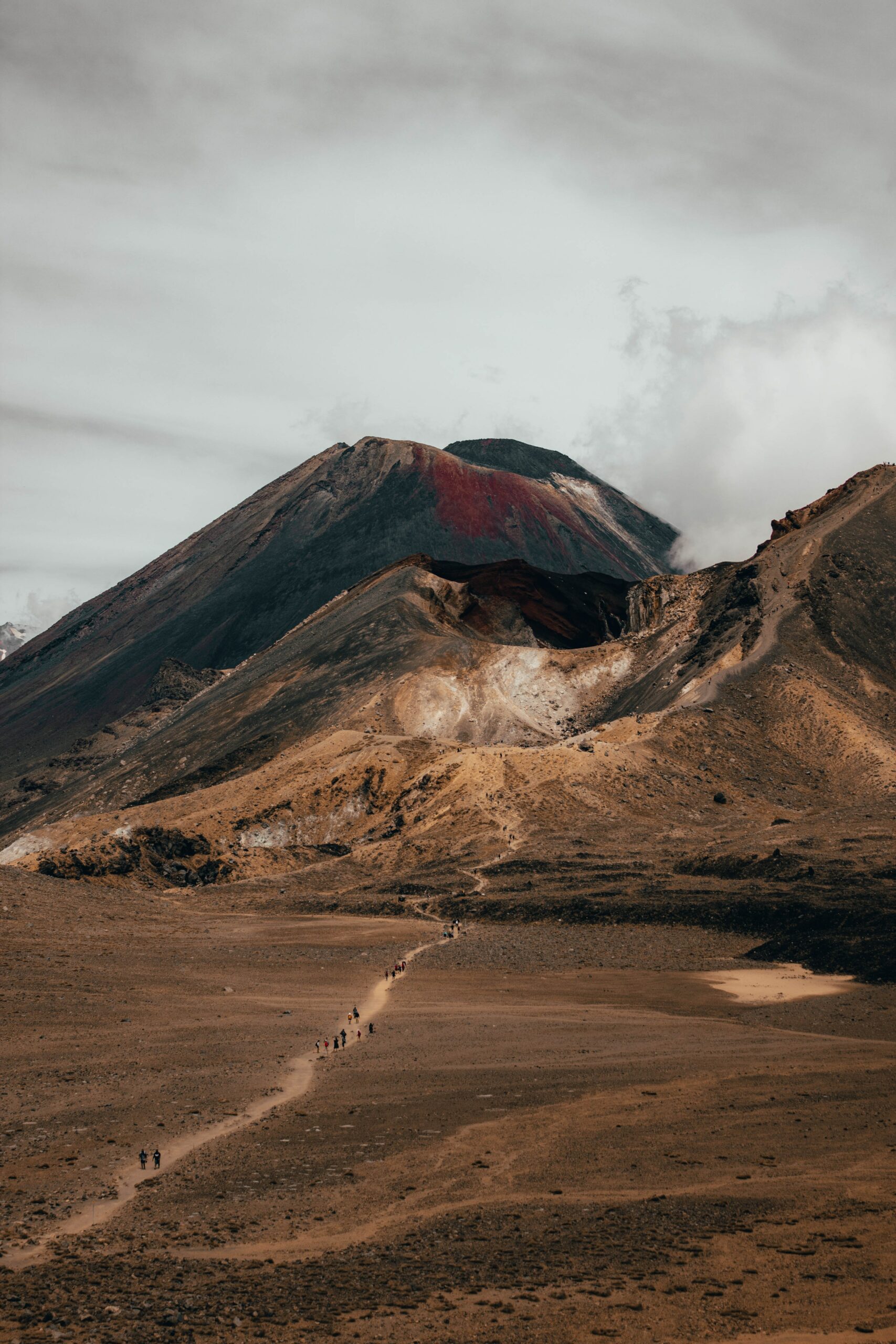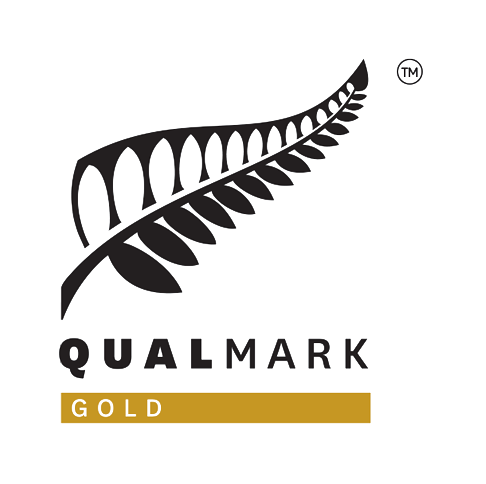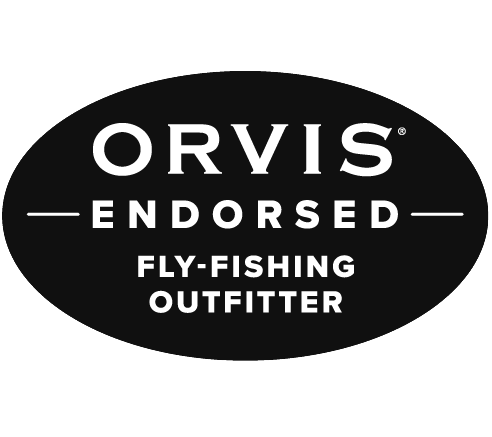What risks are involved in your activities?
All our activities include some level of risk. Your guides takes all practicable steps to ensure your safety, and with any activity in the outdoors you acknowledge an element of risk involved.
Scenic Cruise / Private Charters are operated on Lake Taupō, which is a deep and exposed body of water, with its inherent risks.
Mountain biking is an inherently dangerous sport.
Hiking in the outdoors is an inherently dangerous activity.
Fly Fishing is a water based activity, and that with water, risks are increased.
Please read our Disclosure document for a full list of potential risks.
What activities can my group do together?
All of the Chris Jolly activities are perfect for groups of any size! Bundle any of the
Chris Jolly experiences on offer together for the ideal day in the great outdoors.
What should I bring when hiking in Taupō?
The Essentials
- Day pack with a waterproof liner
- Drink bottle – 2 litres of water per day you will be out.
- Packed lunch and snacks – if you are coming on a guided hike with us, we can cater your hike
- Fully charged mobile phone
- Personal medication, eg antihistamines, asthma inhalers
- Extra base layer and socks
- Rubbish bag
- Map of the area you'll be walking - if you are being guided you will not need this, we will direct you
Emergency equipment:
Our guides carry the following items
- Basic first aid kit including hand sanitiser, sunscreen and insect repellent
- Head torch/torch and spare batteries in case you take longer than intended
- Survival blanket to keep you warm in an emergency
- Whistle in case your split up or need help
- Extra high energy snack food
What clothing is best for hiking in Taupō?
Conditions are changeable in Taupō, so it's best to be prepared! The locals joke that Taupō can have four seasons in a day!
- Hiking boots with good ankle support and grip, or other sturdy footwear
- Sun hat or warm beanie – pack one and wear the other
- Sunglasses – wear or pack, NZ has harsh sunlight
- Gloves in polypropylene/wool – wear or pack for winter
- Socks in polypropylene or wool (a spare pair is always a good idea)
Layer up your clothes:
- Base layer – top and leggings in polypropylene/wool, quick dry shorts or pants
- Mid layer – long-sleeved top in wool or polar fleece – wear or pack depending on the weather
- Exterior layer – Wind and waterproof jacket with hood – wear or pack depending on the weather (waterproof overtrousers optional)
What should I pack for the boat?
Bring the basics: sunscreen, insect repellent, a snack, a filled water bottle, and a warm jersey. If you'd like to go swimming, we suggest togs (kiwi for swimsuit!), a towel and a spare change of clothes.
Do I need to clean my gear before and after fly fishing?
If you have fished in other waterways, you should always
Check, Clean, Dry your kit to protect the waterways from invasive species.
Check - remove debris from your equipment.
Clean - wash gear with detergent.
Dry - If cleaning's impractical, dry the item then leave drying for an additional 48 hours.
Learn more on the
Fish and Game NZ site.
Can I wear felt-soled boots while fly fishing?
No. Felt-soled boots are banned in New Zealand as they can contribute to the spread of invasive species in our waterways. Learn more on the
Fish and Game NZ site.
What fish can be caught on Lake Taupō?
Lake Taupō offers great fishing for rainbow trout and brown trout.
Do I need to register entry to the site?
All visitors and contractors must register entry or head directly to CJO visitor parking & office.
Can I get a permanent pass?
If you are a regular visitor to our boat yard please contact us at boatyard@chrisjolly.co.nz
Who is responsible for health and safety on site?
Everybody is responsible for their own and others health and safety under the Health and Safety at Work Act 2015.
What do I do in the event of an emergency?
In the event of an emergency, raise the alarm by notifying other personnel, exit to the designated assembly point at the front gate, and call 111.
What do I do if there is a risk/incident on the boat yard?
If you have a safety issue or need to report a safety risk/incident, please speak with Chris Jolly Outdoors Office.
Will I need bug spray in Taupō?
Yes, we recommend insect repellant. Lake Taupō is prone to midges and mosquitos that near the lake's edge, especially at dusk. Lake Taupō doesn't have any dangerous insects, just pesky ones.
Can you swim anywhere in Lake Taupō?
Most of Lake Taupō is safe to swim in. When chartering a boat with Chris Jolly, your skipper and team for the day will advise the best swimming spots on the day.
Does it snow in Taupō?
Typically, it doesn't snow in Taupō, but there is always snow on the mountains in the Tongariro National Park, south of Taupō, during the winter months.
What is the water temperature of Lake Taupō?
The temperature varies throughout the year, from around 23°C (73°F) in summer, to 11°C (52°F) in winter months.
Can kids drive the boat?
Yes! If you ask the skipper nicely.
What is the best way to learn fly fishing?
Practice makes progress! We recommend learning how to fly fish on a half-day fly fishing experience with a Chris Jolly Orvis Endorsed guide.
What should I wear for fly fishing in Taupō?
Conditions are changeable in Taupō, so it's best to be prepared! The locals joke that Taupō can have four seasons in a day!
- Rubber-soled boots, with plastic studs if possible
- Sun hat or warm beanie – pack one and wear the other
- Sunglasses – wear or pack, NZ has harsh sunlight
- Gloves in polypropylene/wool – wear or pack for winter
- Socks in polypropylene or wool (a spare pair is always a good idea)
- A fleece or light jersey just in case for summer
- Thermal layers in winter
Layer up your clothes:
- Base layer – top and leggings in polypropylene/wool, quick dry shorts or pants
- Mid layer – long-sleeved top in wool or polar fleece – wear or pack depending on the weather
- Exterior layer – Wind and waterproof jacket with hood – wear or pack depending on the weather (waterproof overtrousers optional)
- Bring your own outerwear, or we can provide!
Can I bring my own equipment?
Yes, you are welcome to bring your own equipment! Anything you don't have, we can supply for the best fishing experience.
Do I need experience to go fly fishing in Taupō?
You don't need any experience to go fly fishing with Chris Jolly Outdoors. Whether you’re an experienced fisherman looking to catch a trophy trout, or a beginner wanting to learn the basics of fly fishing, we have an adventure for you.
What is the location of the guided river rafting trips?
Our guided river rafting trips are on the beautiful Tongariro River, near Tūrangi. The river offers great fly fishing for trout, rated one of the top 10 fly fishing destinations in the world. Rafting down the Tongariro is a great way to experience the beauty of this river and its surroundings.
What fish can be caught in the Tongariro River?
The Tongariro River offers great fly fishing for rainbow trout and brown trout.
What is the maximum group size?
We can accommodate groups of all sizes,
contact us about your group's requirements and we can tailor a trip to suit you.
What kind of equipment do I need for fly fishing?
Our guided trips includes all required gear such as rods, reels, waders, boots, flies and leaders. If you'd like to bring your own kit we recommend:
In summer bring 5-7 wt rods (9 or 10 ft), breathable waders or wet wading if the conditions are right, rubber-soled boots, with plastic studs if necessary.
In winter bring 6-8 wt. rods 9-10 ft, bad weather gear, such as a waterproof fishing jacket, wool layers, winter hat, and gloves.
Please note- No felt-soled boots! Felt soles are banned in New Zealand.
Can I bring my own food and drink on the trip?
Yes, you are welcome to bring your own food and drink on the trip. Our full day guiding rafting and fly fishing adventure includes lunch, snacks and refreshments - please advise in advance of dietary requirements.
Do you provide life jackets?
Yes, we provide life jackets for all participants on the trip. You are required to wear a life jacket at all times while on the river.
How long does the trip last?
Our guided river rafting fly fishing trips are a full day of adventure - be prepared for 8 hours or more.
What is the best time of year to go fly fishing in the Tongariro River?
The best time of year to go depends on what type of trout you're hoping to catch. The brown trout is most active during the winter months, while the rainbow is more active during the summer. If you're looking for a challenging fight, then winter is the best time to go fly fishing on the Tongariro River. If you're looking for something more relaxing, then summer may be a better option.
Fishing seasons:
Lower reaches - 1 July to 30 June;
Mid reaches - 1 December to 31 May;
Upper reaches - 1 October to 30 June
Do I need a license to go fly fishing in the Tongariro River?
Yes, you will need a New Zealand Sports Fishing Licence. We will supply all required licenses on our guided trips.
What can I expect on a guided fly fishing trip?
On a guided fly fishing trip, you can expect a full day of adventure including 8 hours or more on the water. The river offers great fly fishing for trout. Our experienced guides will make sure that you have everything you need to enjoy a successful day on the water.
Is it necessary to have polarized sunglasses when fly fishing?
No, but we do recommend to bring them on your fly fishing adventure. Polarized sunglasses can be helpful when fly fishing, as they will help you to better see beneath the water's surface. This can be helpful when trying to spot trout and make accurate casts.
What is the best time of year to go fly fishing around Lake Taupō?
The best time of year to go fly fishing in rivers and streams in the Lake Taupō region is from October to May - this is when the weather is most stable and the fish are biting.
What type of fish can be found in the rivers around Lake Taupō?
The rivers and streams around Lake Taupō are home to Rainbow and Brown Trout. These fish can range in size from 1-2 kg, with a few trophy fish up for grabs each season.
Do I need a licence to go fly fishing?
Yes, you will need a New Zealand Sports Fishing Licence. We will supply all required licenses on our guided trips.
What is the difference between a guided and unguided fly fishing trip?
A guided fly fishing trip is where you will be supplied with a license and all the necessary equipment, and an expert guide will take you to the best spots for trout fishing. An unguided fly fishing trip is where you rent the equipment and do not have a guide.
What is the average weight of the trout caught in Turangi?
The average weight of the trout caught in Turangi is 1-2kg.
Are there any trophy fish that can be caught in Turangi?
Yes, there are trophy brown and rainbow trout that can be caught in Turangi. These fish can weigh up to 2 kilos.
What is the best way to increase my chances of success when fly fishing?
The best way to increase your chances of success when fly fishing is to book a guided trip with our Orvis-endorsed guides.
What is the weather like in Turangi during October to May?
The weather in Turangi during October to May is stable and ranges from 2-22 degrees Celsius. This is the perfect time of year for fly fishing.
Can you cater to all dietary requirements?
Yes! With a little notice we can make sure that all members of your group are adequately catered for.
Do you have team building?
We can absolutely cater to your team-building needs, whether it be a big friend group or a company looking to get their staff united.
Our packages can be tailored to suit your business's team-building objectives and of course, your budget requirements. Our boats are capable of entertaining groups of anywhere between 2 and 140 people. Activities available onboard are fishing, clay bird shooting, paddling boarding and of course practising the ultimate Manu. Being aboard our boats in the middle of the lake ensures both privacy and exclusivity! What goes on tour, stays on tour.
Who carved the Ngātoroirangi rock carvings?
Matahi Whakataka-Brightwell and a team of carvers worked on the 14m high rock face to carve Ngātoroirangi.
Is Lake Taupō fresh water or salt water?
Lake Taupō is a fresh water lake with excellent water quality, perfect for swimming, fishing and even drinking!
Is Lake Taupō a volcano?
Lake Taupō is a caldera volcano, formed approx 26,000 years ago. It erupted 29 times, with the last eruption about 1800 years ago. These days, Lake Taupō is the second largest freshwater lake in the southern hemisphere.
What are the Huka Falls?
The Huka Falls are a truly mighty 11-metre waterfall on the Waikato River. It is said to be the most visited natural attraction in all of New Zealand! Experience the foaming falls from the banks of the river for free, or book the Huka Falls Jet and Scenic Cruise combo to get your adrenaline pumping and see the falls up close!
Does anything dangerous live in or around Lake Taupō?
No, Taupō, and New Zealand, in general does not have any native or imported predators. There are very small poisonous spiders called the whitetail and katipo, but a quick GP visit and some antibiotics after a bite and you'll be right as rain.
What are the small sculptures by the Māori Rock Carving?
The smaller sculptures surrounding Ngātoroirangi depict tupuna (ancestors) and kaitiaki (guardians) that are pivotal to the history of the local Māori tribe.
How big are the Ngātoroirangi rock carvings?
The Ngātoroirangi rock carvings are a staggering 14 meters tall.
How old are the Māori carvings?
The Ngātoroirangi carvings are over 40 years old. They were carved during the 1970s, taking four years to complete and finished in 1980.
Can you swim in Lake Taupō?
Yes! From December through to March it is absolutely beautiful to get in to that fresh crystal clear water. We would advise a good quality wetsuit if you're going to attempt it in winter!
Does it get cold in Taupō?
Taupō's temperature can vary between lows of 0°C to highs of 15°C in winter, with icy winds coming straight off the Central Plateau mountains. It is best to pack woolly layers and definitely a wind/waterproof jacket. In summer, temps vary from lows of 10°C to highs of 30°C, so you'll definitely need to bring water and sunscreen!
When is the best time to go fly fishing in Taupō?
From May through to October, the trout spawning gears up and runs upstream into the Taupo rivers. If you want a large trophy or very tasty rainbow or brown trout, this is the time to gear up and go!
Where is the best fly fishing in NZ?
We reckon the best fly fishing is on the rivers and streams that flow into Lake Taupō. The conditions here are just perfect for well conditioned rainbow and brown trout.
Are there any native birds around Taupō?
Tuī, pīwakawaka and korimako are amongst the beautiful birds that serenade lake Taupō's verdant native bush. If you're looking for a bird watching trip, let us know when you book!
What if I want to take a hunting trophy home?
If you were lucky enough to bag your shot, your guide will be happy to cape and salt your trophy/trophies for you. If you would like your trophy mounted, that can be arranged here in NZ and we can arrange to have it dispatched freight forward by air to your specified destination. We will complete all necessary documentation for you so that it is all taken care of!
What should I bring hunting?
There's a list! Although we provide all firearms, food and transport to and from the hunting ground (on our one day tours). We do not provide a firearms licence. By NZ law, visiting hunters bringing their own firearms must obtain a firearms tourist licence from the NZ police at the International airport on their arrival. Visiting hunters, however, using our firearms does not require a licence as our guides are fully licenced.
If you choose a multi-day drip we will also provide bedding, food and beverages. We can accommodate all dietary requests so long as we are made aware of them ahead of time.
All that aside, please bring:
- Camouflage clothing
- Woollen based clothing
- Additional layers
- Woollen hat and gloves
- A rain jacket
- Waterproof trousers
- Boots, sturdy with good grip - trainers/runners are not boots.
Do you have transport available?
Yes. Some of our trips include transfers but we can arrange helicopter or road transfers from anywhere in the country. Our guided fishing adventures have heli transfer options, with our grounds being either a 90 minute drive or a 25 minute flight from Taupo CBD.
Is it possible to take home venison on the hunting trip?
Yes! Subject to you or your guide hitting the target on your hind or stag. Venison is a lovely lean meat, perfect for a BBQ lunch, or steak dinner with the fam. Pair with a fresh green salad and roasted Kumara for the ultimate kai.
Is jumping into the lake allowed from the boat?
It is encouraged! The crew will tell you when it's go time. Show us your best bomb - the more water spray, the better!
When do I board my cruise?
Report to Berth 4 at least 15 minutes before your cruise departure time. We recommend being first in line to snag the best spots on the Cruise Cat!
How do I book a trip with Chris Jolly Outdoors?
You can book a trip with Chris Jolly Outdoors by either calling us on +64 7 378 0623, emailing us at bookings@chrisjolly.co.nz or
filling out the form to make an enquiry. If you want to book a cruise to the Māori Rock carvings, head over to
the experience page to book direct.





